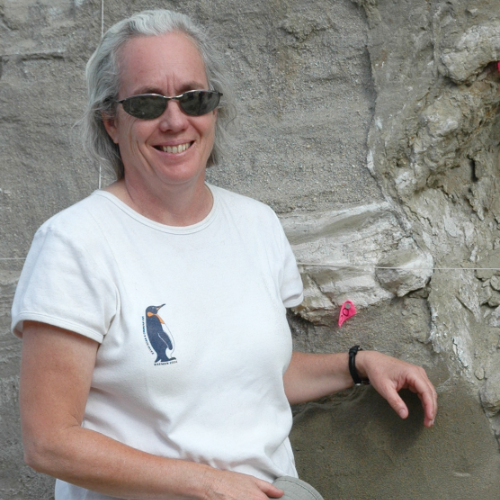
Professor emeritus Terry Wilson has led and coordinated the international effort to geodetically instrument and understand Antarctica, the highest, windiest, driest, most remote, and coldest continent on Earth. It is not an overstatement to say that Terry has personally overseen the geodetic instrumentation of half this continent—I do not believe a single person can claim such a title in the other continents of Earth.
Terry has been a major figure in the international coordination of geodetic observation for 3 decades, starting with the early envisaging of ongoing geodetic observation at rock outcrops in Antarctica for the study of tectonics and then glacial isostatic adjustment. Through the National Science Foundation–funded ANET project, Global Navigation Satellite System receivers went from being largely episodically operating and manually downloaded, with large gaps across the winter and frequent instrument failures, to routinely collecting data year-round, without gaps, and transmitting the data daily to international archives where they are instantly made publicly available. This is all selfless service, with months of her time (and that of her team, working with UNAVCO) spent working out why receivers, power systems, or communication systems had failed while only being able to access a site in person a few days per year. This time is in addition to the more than 20 field seasons in Antarctica installing, upgrading, and maintaining equipment.
In the early 2010s, Terry was part of a small group of Scientific Committee for Antarctic Research (SCAR) scientists who saw the need for greater coordination of research at the ice-solid Earth interface of Antarctica. She led the Solid Earth Response and influence on Cryospheric Evolution (SERCE) Scientific Research Program (2012–2016) under SCAR. SERCE was hugely successful. As a best-effort, small funding program, its success hinged on the ability of its leader to enthuse, encourage, and excite, and this is what Terry did. During this time, and enabled by Terry’s outstanding leadership and enthusiasm, international cooperation in Antarctic geodesy advanced considerably. Through SERCE, Terry saw the opportunity to continue and expand a series of Early Career Researcher training schools focused on glacial isostatic adjustment; these schools have now developed hundreds of researchers spanning dozens of countries.
Terry Wilson is a much-deserved recipient of the Ivan Mueller Award. She has achieved an enormous amount for the community. Now Terry is involved in perhaps the most difficult phase of her work: ensuring that the networks she built and supported are sustained for the years to come.
—Matt King, University of Tasmania, Hobart, Australia
